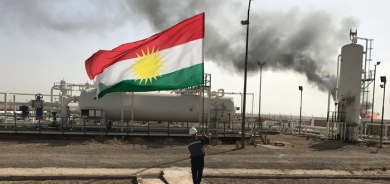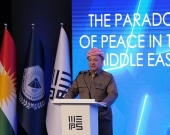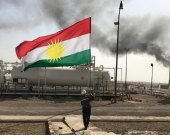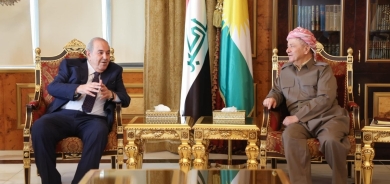KRG Prime Minister Marks 36th Anniversary of Halabja Massacre, Calls for Justice and Remembrance

In a solemn commemoration of the 36th anniversary of the Halabja massacre, Kurdistan Regional Government (KRG) Prime Minister Masrour Barzani issued a poignant reminder of the enduring wounds inflicted upon the Kurdish nation. Remembering the over 5,000 innocent lives lost and over 10,000 wounded in the heinous chemical attack of 1988, Prime Minister Barzani vowed to keep the memories of the martyrs alive.
"The mass murder and genocide of Halabja shall always remain an open wound," Prime Minister Barzani declared, emphasizing the continued relevance of the tragic event. He condemned the persistent mentality behind efforts to erase and exterminate the Kurdish nation, stressing the importance of standing united against such atrocities.
Prime Minister Barzani underscored the ongoing struggle for justice, lamenting the Iraqi government's refusal to compensate the victims despite the recognition of the chemical attack as genocide by the Iraqi parliament thirteen years prior. He called upon the international community to acknowledge and address the injustices faced by the Kurdish people, particularly in the face of ongoing challenges to their constitutional status.
نابێت بهێڵین ئەم تاوانەمان لەبیربچێتەوە.#HalabjaGenocide pic.twitter.com/e7kPxpNNLZ
— Masrour Barzani (@masrourbarzani) March 16, 2024
The Halabja massacre, characterized by the indiscriminate use of chemical weapons, resulted in the deaths of 68% of victims under the age of 18, alongside the destruction of hundreds of villages and the disappearance of numerous children. Prime Minister Barzani reiterated the KRG's persistent calls for compensation for victims of past atrocities, including the notorious Anfal Campaign, which claimed the lives of an estimated 180,000 Kurds.
Despite the passage of time, efforts to achieve justice have seen some progress. The revelation in 2002 of international complicity in supplying chemical and biological weapons to the Ba'ath regime, as well as the subsequent sentencing of individuals such as Dutch businessman Frans van Anraat, have marked significant milestones in holding perpetrators accountable.
The arrest and execution of Ali Hassan Majid, infamously known as Chemical Ali, in 2010 further demonstrated a commitment to justice, though challenges persist in ensuring full accountability for the crimes committed against the Kurdish people.
As the Kurdish nation reflects on the tragic events of Halabja, Prime Minister Barzani's call for remembrance and justice resonates as a testament to the resilience of the Kurdish people in the face of adversity.














